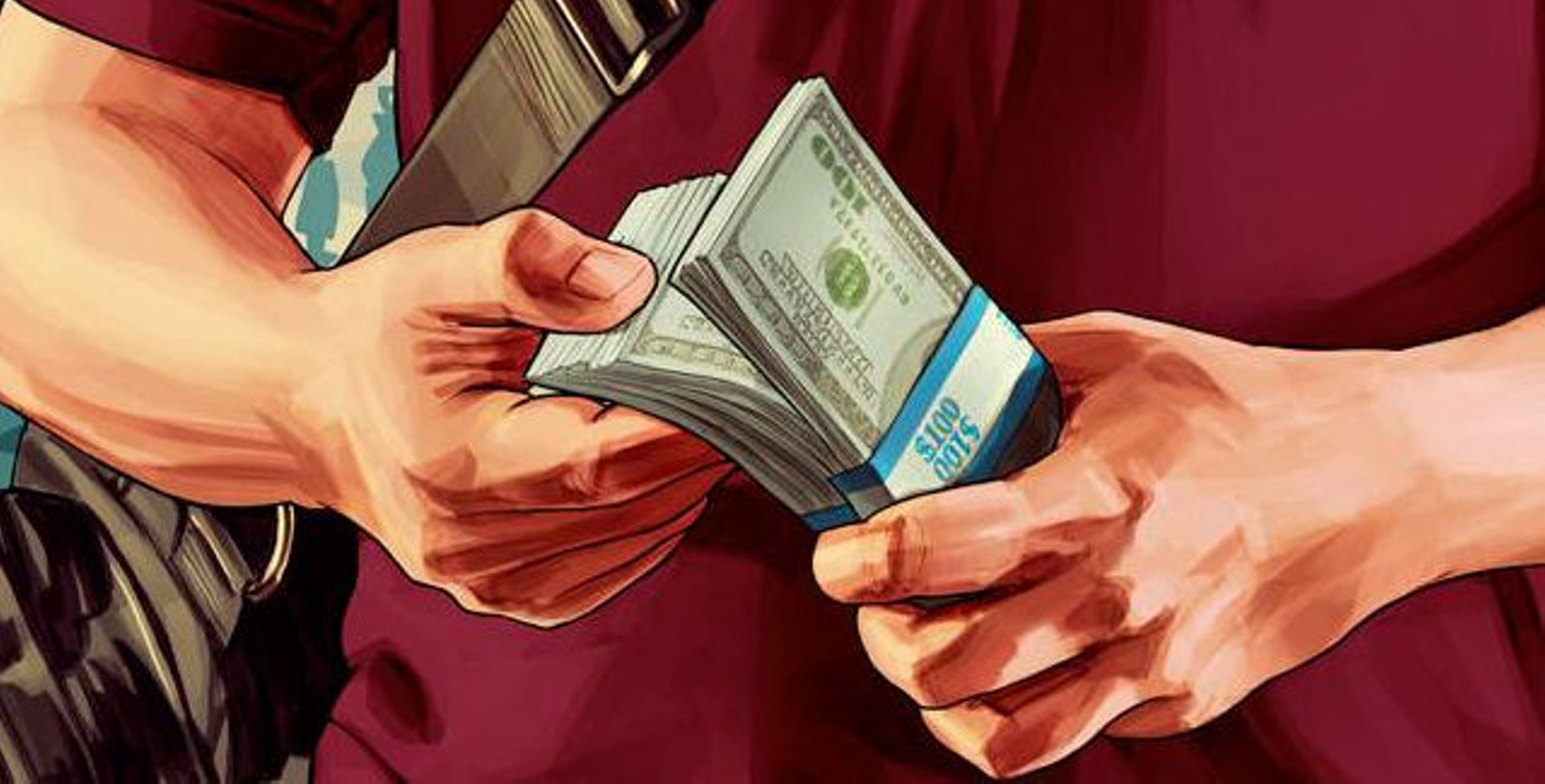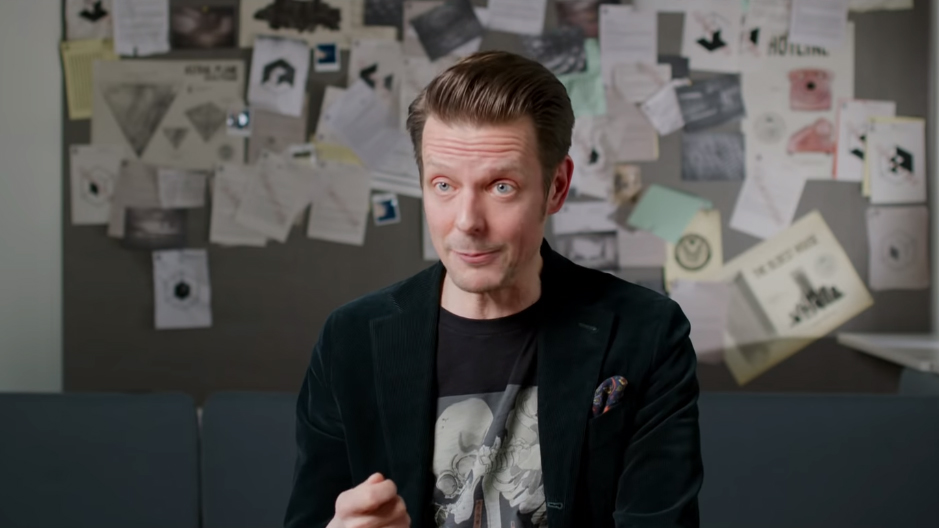What a good (and bad) indie game publishing deal looks like
Lawyer Kellen Voyer has advice for indie developers on what to sign, and what not to sign.

Epic Games presents itself as developer-friendly, and so when it announced a new publishing wing earlier this year, it proudly shared the terms of its contracts. Epic will fully fund development of the games it publishes, and once it recoups that funding, will share at least 50 percent of the revenue with the developer.
That's great! Or is it? Maybe it sucks?
I asked around for informed opinions at the time, and Epic's terms were received positively by those I spoke to. The 50/50 split isn't the most favorable revenue sharing scheme out there, but the huge potential advance (the entire development cost) offsets that. Still, I wasn't entirely satisfied by the information I was able to get. Epic's announcement mostly just revealed how little public information there is about the deals developers make with publishers.
Lawyer Kellen Voyer, who works with indie game developers, is also concerned about the information advantage publishers have: They know what a "standard" game publishing contract looks like, but a new indie developer may have no idea. In a GDC Summer talk this week (the event is taking place via livestreams this year), Voyer sought to start correcting that imbalance by presenting the average data from 30 indie game publishing agreements, some negotiated by his firm, Voyer Law Corporation, and others that were submitted to him.
A good indie game publishing contract
By a "good" publishing contract, I mean one that roughly matches the favorable terms some other indie developers are getting. Any contract could be more favorable to the developer, and maybe they all should be, but this is the average indie game publishing deal that Voyer worked out based on the 30 contracts he analyzed:
- The developer gets a $318,000 advance from the publisher to spend developing the game. (This is an average, and depends on the nature of the developer and the project, not just the quality of the contract.)
- The advance is paid out in pieces as the developer meets milestones set by the publisher. For example, a milestone might be the completion of an alpha build. Ideally, the developer has negotiated to make sure the milestones are clearly worded.
- When the game is ready to release, the publisher sets the game's price, but the developer has a say in how soon it can be discounted or bundled.
- While the publisher is recouping the $318,000 advance, 60 percent of the game revenue goes to the publisher, and 40 percent to the game developer. After the advance has been recouped, the revenue sharing swaps. 60 percent goes to the developer, and 40 percent to the publisher.
- The developer retains ownership of the game's intellectual property (the copyrights and trademarks).
- The publishing agreement lasts around 6.5 years.
There's lots of variation in individual contracts
In 42 percent of the contracts Voyer looked at, the publisher took all of the revenue until it made the advance back.
Averages can be deceiving: A $318,000 average advance doesn't show you that some indie publishing deals involve no advance at all, while others involve millions of dollars. During his talk, Voyer broke down each of the common contract clauses, providing important context. One point to note is that the 30 deals in his sample group did not include publishing contracts for mobile games, which have different characteristics.
Here are some of the details Voyer shared:
Keep up to date with the most important stories and the best deals, as picked by the PC Gamer team.
- The $318,000 average advance factors in deals which involved no advance, as well one that included a $2,000,000 advance.
- Zero-advance deals usually happen when a game is nearly done. Rather than funding the game, the publisher comes in at the end solely to handle distribution and marketing. These deals aren't necessarily bad, because the revenue share is typically much more favorable for the developer, with an average of 71 percent going to the dev.
- If there is an advance, the developer gets a smaller revenue share, and there's almost always some kind of recoupment clause in the contract. Recoupment means that the publisher takes all or an extra portion of the revenue until it makes back the advance.
- In many recoupment schemes, both the publisher and the developer get some portion of the revenue as soon as the game goes on sale. However, in 42 percent of the contracts Voyer looked at, the publisher took all of the revenue until it made the advance back.
- A 50/50 split isn't the standard. When there's a big advance, devs typically make at least 53 percent of the overall revenue, and the average goes up to 55 percent with smaller advances.
- Most contracts are for a fixed term, like 10 years, but 38 percent last forever.
- Developers almost always retain ownership of their intellectual property.
- Publishers always set pricing, but developers can get restrictions on discounts and bundling into the contract.

What about that Epic proposal?
If a 50/50 split isn't the standard, what should we make of Epic's terms, which set 50 percent as the baseline developer revenue share?
There's one big difference between Epic's proposal and the indie contracts Voyer is talking about: the size of the advance. One of Epic's first developer partners is Remedy, whose last game, Control, cost around $30 million to make. Epic is paying for the entire development cost of Remedy's next game. We don't know exactly how much that is, but it's not the $318,000 average found in the contracts Voyer analyzed. It's probably tens of millions.
"The studios that signed with Epic at launch may be 'independent' in the sense of independence from a major publisher or platform," said Voyer in an email, "but I don’t consider them indie in the way the term is commonly used in the industry."
"I expect if Epic goes after some truly indie studios the terms would be better, with the above representing a baseline," he added.
In other ways, though, Epic's offer is similar to the indie contracts Voyer works with. Epic noted that developers keep their IP. Voyer says that's true in 93 percent of the indie deals he looked at. He also said that the "full creative control" Epic offers "is very common in indie deals, with the only control exerted concerning milestone scope and marketing."
There are things we don't know, such as how Epic handles recoupment of the advance, although it is normal to have some kind of recoupment scheme in the contract. Voyer says that deals where there's no recoupment plan tend only to happen when a big company is securing an exclusive for a new platform—as in, when Sony or Microsoft want a prestigious indie game to help market a new console.
What indie developers should always say no to
During his talk, Voyer identified some terms that he thinks indie devs should reject when negotiating a publishing contract:
- A 50/50 revenue split after recoupment. Go for higher. And if possible, negotiate for a share of the revenue even while the publisher is recouping the advance.
- Giving the publisher the option to publish a sequel under the same terms. The publisher can ask for the right to negotiate terms for a sequel (and probably will), but the developer should be free to seek a better offer if that negotiation falls through.
- Publisher ownership of IP. This was more common in the '90s and early 2000s, but is not standard these days. Devs typically keep their IP.
- A perpetual publishing agreement term. Voyer advises always to have a term limit, so that you aren't shackled to the same publisher ten years later when you want to make an HD remaster, for example.
- A publishing agreement with no audit rights. Audit rights allow the developer to have an accountant check over the publisher's books to make sure they've paid out the correct amount of revenue.
- A publishing agreement in which the developer has no say over how soon the game can be discounted or bundled. Voyer says that this is to protect the developer from a scenario in which a publisher gets into financial trouble and slashes the price of their game to make some quick cash.
Voyer's averages help illuminate what we're talking about when we talk about game sales and revenue numbers, and why indie studios can struggle even after launching a seemingly successful game. If a big advance was involved, the developer may not get any revenue until after the publisher recoups the advance. Ideally, though, they've been able to negotiate for a stream of revenue even while the publisher is recouping its costs—something to keep the lights on.
In the future, Voyer hopes to make a bigger, crowdsourced collection of contracts to help independent developers get a better sense of what "standard" means when it comes to publishing negotiations. If you're someone who can share the terms of a real publishing deal and want to help Voyer with his database, he says you can contact him at kellen@voyerlaw.com.

Tyler grew up in Silicon Valley during the '80s and '90s, playing games like Zork and Arkanoid on early PCs. He was later captivated by Myst, SimCity, Civilization, Command & Conquer, all the shooters they call "boomer shooters" now, and PS1 classic Bushido Blade (that's right: he had Bleem!). Tyler joined PC Gamer in 2011, and today he's focused on the site's news coverage. His hobbies include amateur boxing and adding to his 1,200-plus hours in Rocket League.

